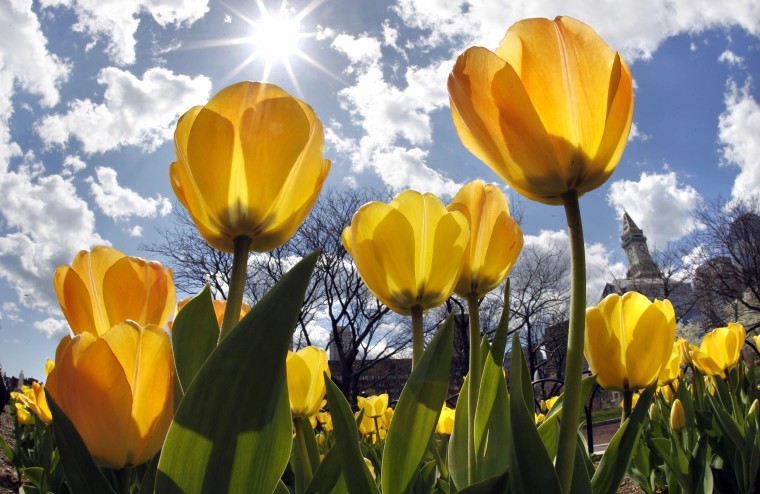Spring flowers may arrive as much as three weeks faster over the next century as climate change drives an earlier end to winters in areas of the United States, researchers say in a new report.
Warmer weather sooner in the year might have consequences for farmers as well as wildlife, said the researchers from the University of Wisconsin, U.S. Geological Survey and U.S. Fish and Wildlife Service. Their report was published in the journal Environmental Research Letters.
Read More: Bumblebees Are Being Bumped Off by Climate Change, Scientists Say
“Our projections show that winter will be shorter — which sounds great for those of us in Wisconsin,” Andrew Allstadt, a postdoctoral fellow at the University of Wisconsin and co-author of the study, said in a statement. “But long-distance migratory birds, for example, time their migration based on day length in their winter range. They may arrive in their breeding range to find that the plant resources that they require are already gone.”

Another concern involves “false springs” — a warm period that tricks sleeping plants into thinking it’s time to come out after the winter, putting them at risk if there’s a sudden cold snap.
In all, some areas of the Lower 48 states could see the start of spring shift three weeks back by 2100, a trend that’s been building for the last several decades, the new research suggests.
The complex nature of climate change makes it very difficult to predict how much any individual area will be affected, the researchers said, and the changes won’t be the same everywhere. Some areas of the Plains may even see spring start later, they wrote.
Read More: Obama's Alaska Trip Stresses Wildfires' Impact on Climate Change
